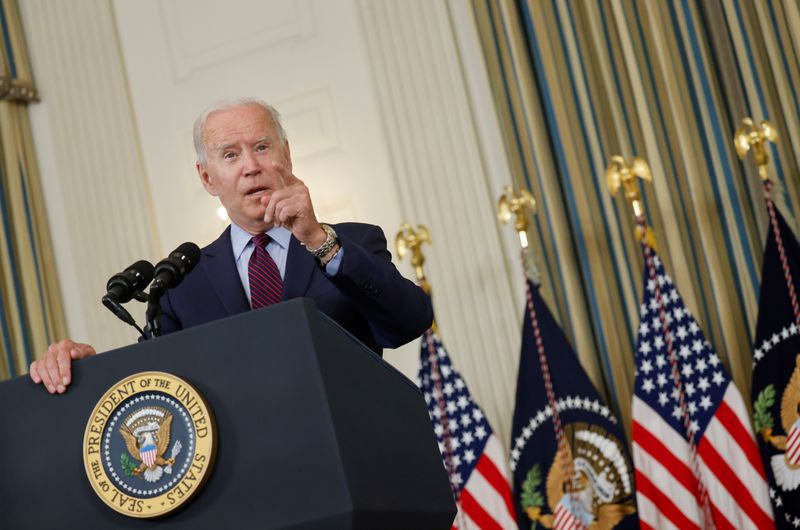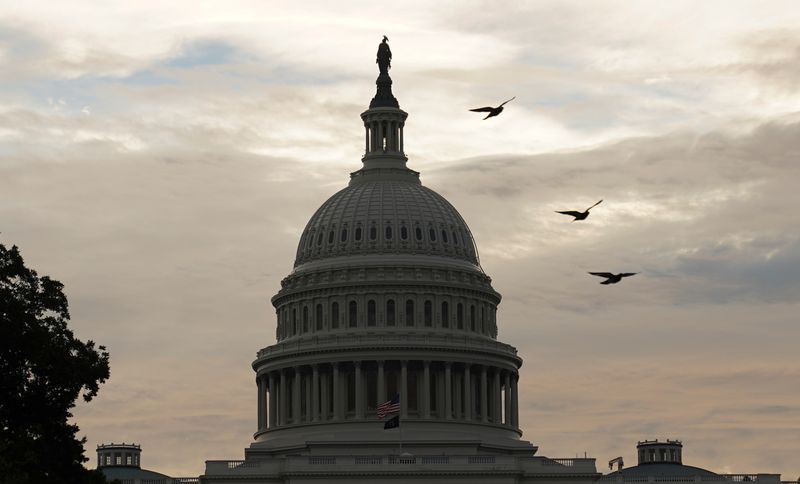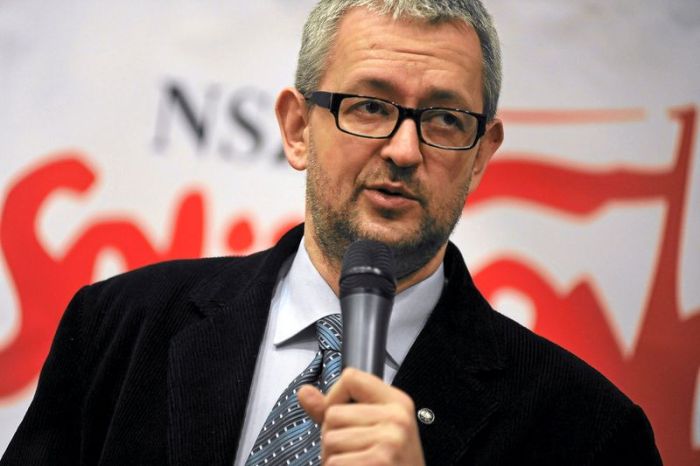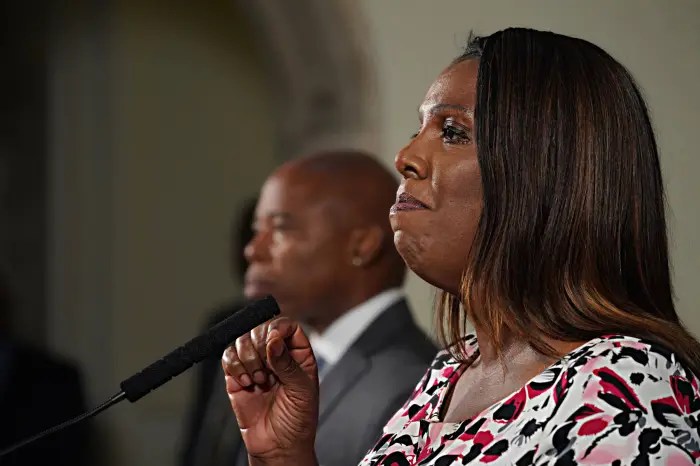WASHINGTON (Reuters) -President Joe Biden said on Monday the federal government could breach its $28.4 trillion debt limit in a historic default unless Republicans join Democrats in voting to raise it in the two next weeks.
Senate Republicans, led by Minority Leader Mitch McConnell, have twice in recent weeks blocked action to raise the debt ceiling https://www.reuters.com/world/us/congress-confronts-us-debt-ceiling-drama-again-2021-09-22, saying they do want action but will not help by voting for the move. Republicans say Democrats can use a parliamentary maneuver known as budget reconciliation to act alone. Top Democrats have rejected that approach.
“Raising the debt limit comes down to paying what we already owe … not anything new,” Biden said at a White House news conference.
Asked if he could guarantee the United States won’t breach the debt limit, the president answered: “No, I can’t. That’s up to Mitch McConnell.” He said he intended to speak with McConnell about the matter.
McConnell for months has said that Democrats should use the budget reconciliation process to get around the Senate’s filibuster rule, which requires 60 of 100 members to agree to pass most legislation. Senate Majority Leader Chuck Schumer, a Democrat, has refused to use that approach, and Biden on Monday pleaded for Republicans not to block action with the filibuster.
“Just get out of the way,” Biden told Republicans. “If you don’t want to help save the country, get out of the way so you don’t destroy it.”
But Senator Joe Manchin, a moderate Democrat who has been at odds with many in his party on other major issues, said Democratic leaders should not rule out using budget reconciliation to raise the debt ceiling.
“Well they shouldn’t rule out anything – we just can’t let the debt ceiling lapse,” Manchin said, according to CNN reporter Manu Raju, who tweeted the senator’s comments.
‘PREVENTABLE CRISIS,’ MCCONNELL SAYS
Calling default a “preventable crisis,” McConnell remained adamant. “Democrats need to tackle the debt limit,” he said on the Senate floor.
In an open letter to Biden, McConnell reiterated that Democrats do not need Republican cooperation to pass a bill to raise the debt ceiling. Democrats have known the Republican position for three months, McConnell wrote.
Late last month the U.S. House of Representatives passed and sent to the Senate a bill to suspend the limit on Treasury borrowing through the end of 2022.
Schumer on Monday filed a cloture motion, which ends debate, on a measure that would allow for extension of the debt limit. The Senate is likely to vote on it later this week, the third time Schumer has brought the issue to a vote.
Treasury Secretary Janet Yellen last week warned lawmakers that the United States government would exhaust its federal borrowing capabilities by about Oct. 18.
Failure to act could have catastrophic economic consequences. Moody’s last month warned that default could cause a nearly 4% decline in economic activity, the loss of almost 6 million jobs, an unemployment rate of close to 9%, a sell-off in stocks that could wipe out $15 trillion in household wealth and a spike in interest rates on mortgages, consumer loans and business debts.
Concerns over the debt ceiling contributed to Monday’s drop in the stock market. Wall Street’s main indexes tumbled. [.N]
Democrats voted to raise the debt limit during Republican President Donald Trump’s administration even though they opposed deep tax cuts that added to the debt.
Biden said the United States racked up nearly $8 trillion in new debt over Trump’s four years in office, more than one quarter of the entire debt outstanding.
“Republicans in Congress raised the debt three times” under Trump, he said, with Democratic support.
Schumer said the Senate will have to stay in session through the weekend and possibly into a planned recess next week if no progress is made on raising the debt limit.
(Reporting by Susan Cornwell, Richard Cowan and Jarrett Renshaw; additional reporting by David Morgan, Jeff Mason, Steve Holland, Diane Bartz, Eric Beech and Makini Brice; Editing by Scott Malone, Mark Porter, Grant McCool and Cynthia Osterman)
























